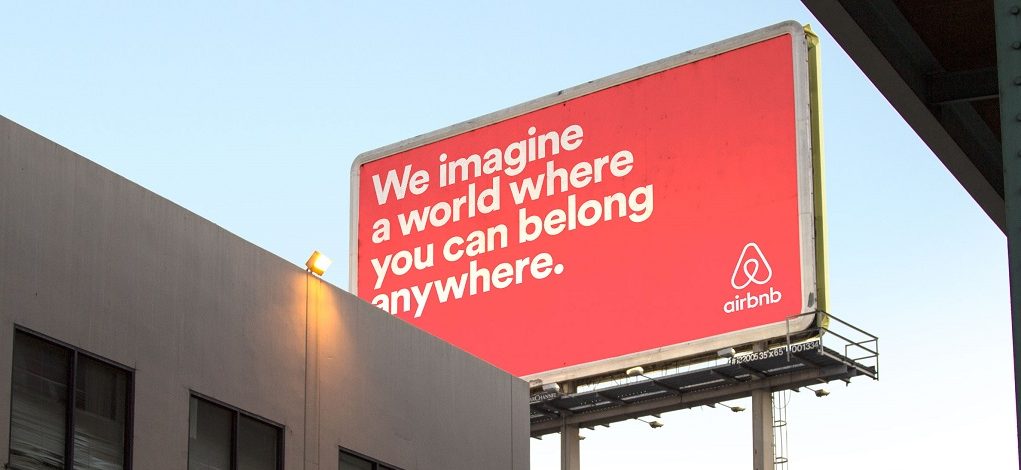When it comes to billion-dollar companies, Uber and Airbnb are often mentioned in the same sentence. According to recent news, AirBnB is in the process of raising another round of funding that will set its value at $20 billion. To date, Uber is valued at $41.2 billion. Guess what these two billion-dollar businesses which aren’t even competitors have in common? You guessed it — the sharing economy.
AirBnB’s growth, technology and monetization
In this article we are going to uncover some particularly interesting features of Airbnb’s underlying technologies. But first, I’ll talk a little bit about what Airbnb was like before it conquered the world.

How AirBnB got into gear
Just like Uber disrupted taxi booking services by making personal drivers available to everyone, Airbnb brought a wind of change to the traditional hospitality market. Who would’ve thought that the age-old hotel industry could be disrupted by such an absurd (let’s be honest) idea?
A strange combination of hotel and CouchSurfing called Air Bed & Breakfast, created by Brian Chesky, Joe Gebbia, and Nathan Blecharczyk, was officially launched in 2008. Though in the early days it seemed crazy to many, the idea of Airbnb was destined for greatness. Current users of AirBnB share their space in 190 countries and more than 34,000 cities. There are over 1 million listings on the platform, and AirBnB corporate has expanded to 12 offices in different parts of the world.
Startups typically like to use Paul Graham’s template “this for that,” and Airbnb is no exception. These guys used to be dubbed “eBay for space.” Now, how many startups do you know who call themselves “AirBnB for X”? Pioneers of the sharing economy are popping up everywhere.
It’s obviously not enough just to have a great idea for collaborative consumption. You also need to do something to grow your idea into a platform for consumption – you need to hack growth. In order to get their first visitors, the co-founders of Airbnb implemented a remarkable integration with Craigslist, which allowed Airbnb hosts to automatically create a posting on the site. Craigslist didn’t even have a public API! You can read more about this paradigm-shifting strategy here.
The Airbnb community started in New York, which was the first destination for the co-founders to “do things that don’t scale.” Paul Graham’s advice became the main vision for the company. “It’s better to have 100 people love you than to have 1,000,000 people like you,” – said Brian Chesky, the CEO at Airbnb.
Airbnb’s international expansion began in 2011, when they acquired a German competitor, Accoleo. From that day on Airbnb started growing like crazy. And in this article we will take a look at how Airbnb uses technology to facilitate monetization and growth – many startup companies’ two core concerns.
Monetization
Airbnb makes money by charging fees on booking made through the app. Guests are required to pay a 6% to 12% non-refundable fee. The exact cost depends on the size of a reservation — a more expensive one will result in a lower service fee. The fee is paid when a reservation is booked and approved by the host.
Airbnb also charges hosts. When the host is asked to confirm or reject a booking request, Airbnb informs them of a 3% service charge.
In addition to the service fees, Airbnb may also charge a value-added tax (VAT), but this depends on local and international tax laws.
Airbnb’s travellers who have an iPhone 6 or 6 Plus can book and confirm their accommodations using Apple Pay. According to one MIT study, people tend to spend more money when the payment process is made easy. Following this logic, the Apple Pay implementation will inevitably lead to users spending more in the Airbnb app.
AirBnB doesn’t decide how much to charge for accommodation. They let the hosts define what price tag to put on their property, and whether to include any of the fees permitted on the AirBnB platform, including taxes.
Growth and customer experience
AirBnB positions itself as a hospitality brand aimed at improving customer experience. According to Gustaf Alströmer, AirBnB’s growth manager, the philosophy of the company is to have the users tell the story.
This is why they launched neighborhoods, included local recommendations and host guides, and even bought Localmind – a startup that knows how to get the right answers about places directly from the people that live there.
Airbnb’s growth strategy is evolving around features that touch non-users – referrals, wish lists, neighborhoods, listings, references, and their amazing blog. Word of mouth, though, has proven to be the most efficient growth tool for the rental service. AirBnB’s daily bookings tripled when they implemented their referrals program.
The next horizon for the sharing economy in general, and AirBnB, in particular, is business travel. It turns out Airbnb is taking promising steps in enterprise with their business platform. By the way, Uber’s business edition is pursuing the same goal.
Concur, the world’s leading provider of money management solutions, reports that Airbnb saves users 41% when compared with hotels (that’s an average of $102 a night). The benefits of the sharing economy make the AirBnB platform a great tool for companies trying to save some money on their employees’ travel expenses.
For more business and career tips, check our entrepreneurship section and sign up for our weekly newsletters.



![Best startup accelerator programs in Europe [2025 Edition] alphagamma best startup accelerator programs in europe entrepreneurship](https://agcdn-1d97e.kxcdn.com/wp-content/uploads/2023/11/alphagamma-best-startup-accelerator-programs-in-europe-entrepreneurship-300x350.jpg)


